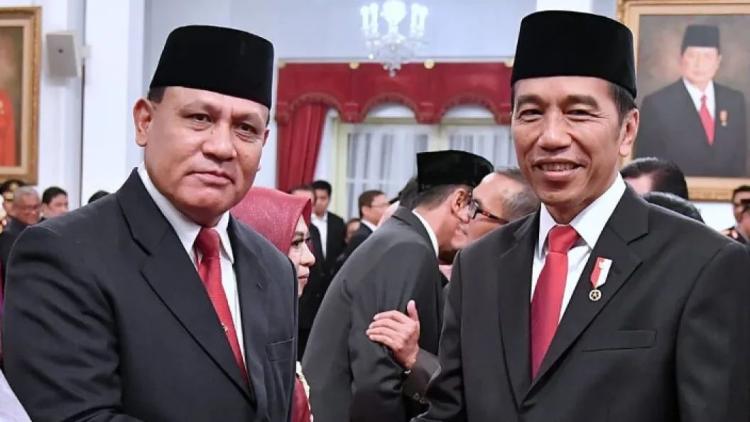Responding to the Indonesia’s Anti-Corruption Chief, Firli Bahuri Named as a Suspect in Alleged Extortion Case

The extortion case against former Agriculture Minister, Syahrul Yasin Limpo has moved into a new phase as now that Firli Bahuri has been named a suspect. On Wednesday (22/11/2023) evening, Directorate of Special Criminal Investigation of the Jakarta Metropolitan Regional Police Headquarter (Polda Metro Jaya) made it clear that there were strong suspicions that the Chairman of the Corruption Eradication Commission (KPK) had committed extortion (Article 12 letter e), or receiving gifts or gratification (Article 12B), or accepting bribes (Article 11) as regulated in the Corruption Eradication Law.
Firli's alleged corruption was confirmed by a number of pieces of evidence that were owned by Polda Metro Jaya investigators, including foreign exchange documents in Singapore and United States dollar denominations totaling IDR 7.4 billion (more than US$ 479 thousand). In addition, to bolster the evidence, the investigators have also asked for information and confirmation from 91 witnesses and experts.
Looking at Firli's track record, both prior to and during his time as KPK leader, makes his determination as a suspect less surprising. Since he was the Deputy for Enforcement at the KPK from 2018-2019, Firli already had a habit of meeting litigants. At that time, the retired three-star general of the National Police was known to have twice met the Governor of West Nusa Tenggara (NTB), M. Zainul Majdi or Tuan Guru Bajang, even though it was known that he was being investigated by the KPK on suspicion of corruption.
Regrettably, President Joko Widodo's selection committee neglected this track record aspect in selecting the leader of this anti-corruption agency. As a result, Firli's series of controversies which tarnished the reputation of the KPK when he was elected chairman, starting from a series of alleged violations of the code of ethics to being named a corruption suspect, and it has clearly become a full responsibility that has to be placed on the President who failed to support the work of eradicating corruption in Indonesia.
This case will be remembered as an embarrassing scandal for Indonesia at the global level, because the leadership of the anti-corruption agency, which should be at the forefront of eradicating corruption, was actually involved in the practice of corruption. For this reason, Indonesia Corruption Watch suggest several points:
First, Polda Metro Jaya should run the legal process for Firli’s alleged extortion case with accountability and impartiality. The investigators were able to detain Firli after he was identified as a suspect. The purpose of this is to prevent the person involved from running away, losing or destroying evidence.
Secondly, the KPK Supervisory Board (Dewas) must immediately escalate the complaint process for alleged ethical violations committed by Firli to an ethics trial, Due to Dewas' slow response time to reports of alleged ethical violations committed by Firli Bahuri. Dewas should also consider that the decision against Firli is an ethical violation that deserves heavy sanctions, in the form of encouraging him to resign as leader, because he has at least violated Article 4 paragraph (1) letters g and h of Dewas Regulation Number 2 of 2021.
Third, after issuing a Presidential Decree (Keppres) regarding the temporary dismissal of Firli Bahuri as head of the KPK, as well as appointing Nawawi Pomolango, who was previously a Deputy, to become interim chairman of the KPK, the President as his direct superior must ensure that the enforcement performance of this anti-corruption agency is accountable and free from political interests.
This case needs to be used by the President as a means of correcting and evaluating the process of selecting future KPK leadership candidates. It is important that the selection process includes public input on the track records of the candidates who will lead this anti-corruption agency.










